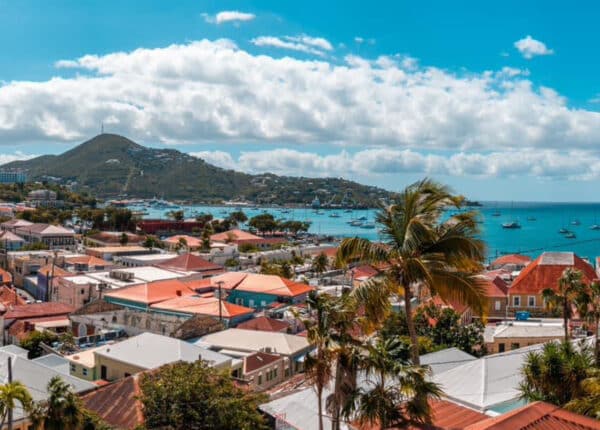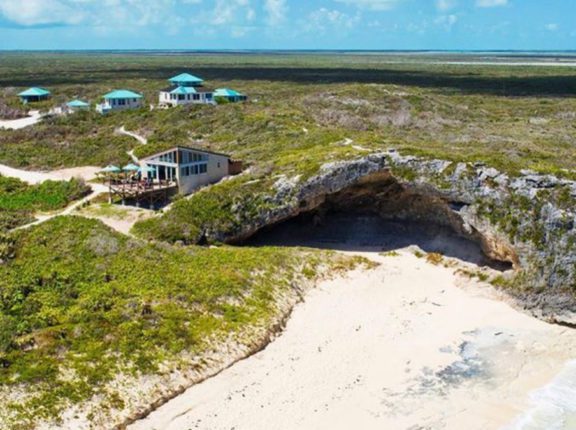Op-Ed: Climate Change and Fighting Poverty in the Caribbean
By George Nicholson and Orissa Thomas
Op-Ed Contributors
TODAY, most people consider climate change to be a reality and not a myth. A result of this phenomenon, natural hazards have been identified as having crippling effects on many countries, particularly those already vulnerable: Caribbean Small Island Developing States (SIDS).
However, the disasters created in these countries as a result of natural hazards are only one aspect of the detrimental effects of climate change. The gradual changes in the environment, on the other hand, such as increased rainfall, extreme drought and rising sea level heighten the problems faced by those countries already vulnerable to climate change as these significant changes impact on agriculture and tourism, both of which are important to the Greater Caribbean and Sustainable Development.
While agriculture is the major economic land-use activity in the Caribbean, it accounts for a small portion of most islands’ GDP. Notwithstanding this however it still holds great importance. The Caribbean Community Secretariat states that in 2005 agriculture accounted for 35 percent of total GDP in Guyana, 18 percent in Dominica, 15 percent in Belize and 8 percent in Grenada and St Vincent and the Grenadines.
In Antigua and Barbuda, Barbados, St. Kitts and Nevis, and St. Lucia, the agriculture sector’s contribution to GDP varied between 3 percent and 6 percent. In addition to its contribution to GDP, this sector also plays an increasingly important role in food security in a region typically characterised by increasing importation of food. Agriculture therefore becomes vulnerable to climate change as changes in weather pattern will affect the sector and by extension, those who rely on it.
While the links between climate change and rainfall occurrence are still being debated, the reality is that most countries, particularly those in the hurricane belt, are seeing an increased number of storms, which themselves have increased intensity.
The effect of this on countries which dedicate large areas of land to agricultural production for export can be particularly devastating. Recent storms have wiped out the entire sugar cane production of Cuba, banana plantations in Jamaica, St Lucia and Dominica, and decimated nutmeg exports from Grenada — this, coupled with the fact that the devastation wreaked on infrastructure curtails the country’s ability to respond.
In fact, the effects of storms in the region on some island economies have resulted in damages exceeding 200 percent of country GDP in some cases.
The impact of climate change is also seen in the extreme drought experienced by countries in and out of the traditional dry seasons. The decrease in rainfall has reduced the water available for farming and in some cases has caused the destruction of entire food crops. Rural farming which in some cases is characterised as subsistence farming stand to be affected, causing further hardships on groups already considered vulnerable.
In rural Jamaica, 25 percent of the population lives in poverty and this is where agriculture is the main source of livelihood. Despite the 7 percent contribution made to GDP by agriculture in Jamaica, it employs over 220,000 of the 1,239,000 people employed. Thus, those already vulnerable to changes in the agriculture sector are even more at a disadvantage with the changes brought on by climate change.
Caribbean SIDS in the Greater Caribbean region also stands to face challenges in the traditional tourism sector as a result of climate change. Traditional tourism (sun, sand and sea tourism) relies on the natural assets of the region; beaches, coral reefs and favourable weather conditions and is a key contributor to regional GDP. Rise in sea level and ocean acidification present real threats to these types of economies.
While a lot of attention has been placed on sea level rise, ocean acidification may present even a greater risk to island economies when placed in the context of decreased agricultural production and increased storm intensity. Most Caribbean islands have expansive reef systems which support both the fisheries industry as well as tourism. Oceans absorb a key climate change gas, carbon dioxide, and as a result become more acidic on a relative scale, because some of the carbon reacts within the water to form carbonic acid.
This reduces the amount of dissolved carbonate available for calcium carbonate shell and skeleton formation – important to corals, plankton and shellfish. Corals reefs, already under threat in the region, are likely to have a tough time. The invertebrate species secretes calcium carbonate to make the rocky coastal reefs that form the basis of some of the most productive ecosystems in the oceans. Coupled with bleaching due to warming of the waters, it is believed that the reefs could die as corals could become virtually extinct by the end of the century.
Most Caribbean tourism is coastal, with hotels dotting sandy beaches in most countries.
Unfortunately the reefs, which are now at risk, provide significant protection from the immense power due to hydro meteorological events such as hurricanes. Without the protection of the reef, the forces caused by the storms damage beaches, thereby reducing the viability of tourism investments. The Inter-American Development Bank states that almost one-third of Caribbean tourism resorts are at flooding risks from sea level rise and increased sea surface temperatures are expected to result in severe bleaching stress to the reefs of the Caribbean as early as the 2030s, surpassing the ability of many areas to recover.
With the impact of climate change on agriculture and tourism being so severe, it is a constant threat to the reduction of poverty in already economically fragile areas. Adaptation strategies need to be employed in order to mitigate the effects and assure the sustainable development of the region. It is thus important that the link between climate change and disaster risk reduction be strengthened.
George Nicholson is the Director of Disaster Risk Reduction and Orissa Thomas is the Unit Assistant to the Communications Officer at the Association of Caribbean States.
Note: the opinions expressed in Caribbean Journal Op-Eds are those of the author and do not necessarily reflect the views of the Caribbean Journal.







